Welcome back to the Ethical Reckoner. Usually I reserve these for the last week of the month, but for no particular reason, I’m bringing this month’s up. Today, we’re talking about the radical feminist 4B movement that’s taken off online, how it relates to a long history of women’s and lesbian communes, and what that means for the future of women’s separatism online and in the physical world.
This edition of the Ethical Reckoner is brought to you by… Venice.
Maybe you’ve heard, but the US had an election last Tuesday. And then it stretched into Wednesday, and when the dust settled, Donald Trump had won, which came as a shock to many—predictions had it closer than a coin flip, but some signs were pointing towards a Harris victory—even a resounding one.
I was abroad for the last presidential election. This time, I was on a plane. I had only janky messaging wifi (iMessage worked, WhatsApp didn’t), so I tried to knock myself out (only melatonin, don’t worry) as initial results started trickling in.
Then I woke up about three hours later to a series of increasingly grim text updates. I was wearing my “I Voted” sticker on the plane, which felt bitterly ironic as the day wore on.
When we landed in Zurich, Trump declared victory, and when we landed in Venice, they called it. And then basically every Italian we encountered asked us about it. My colleagues (and dear friends) Jess and Renée and I were jet lagged and shell-shocked and in no mood to discuss it.
Why were we in Venice? Well, the Digital Ethics Center and the Cini Foundation partnered to put on a conference on Global Health in the Age of AI. We convened experts from across the globe—over a dozen countries and every continent save Antarctica—on the island of San Giorgio Maggiore in Venice for three days of presentations and discussions about, as Jess put it, the why, how, and who of AI and global health. We discussed issues like trust, regulation, AI in clinical note taking, and and geopolitics (this is a generous “we” since, as you may have noticed, health is not my area—I was there as a rapporteur). We also ate extremely well and brainstormed a horror movie set on the island, because the only way on or off was by boat, and on Friday when Venice public transit (including the water taxis) was on strike, we literally couldn’t leave.
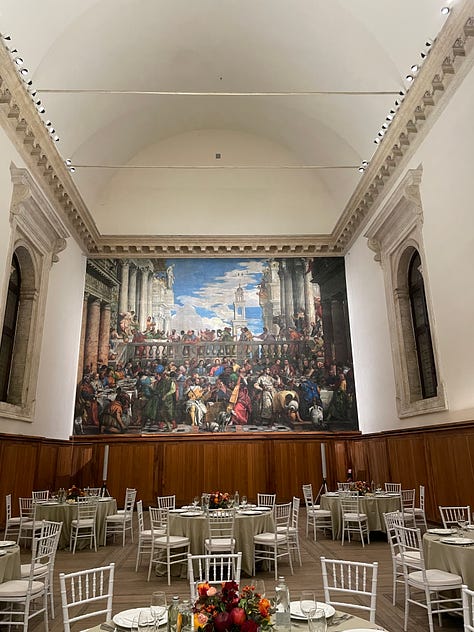

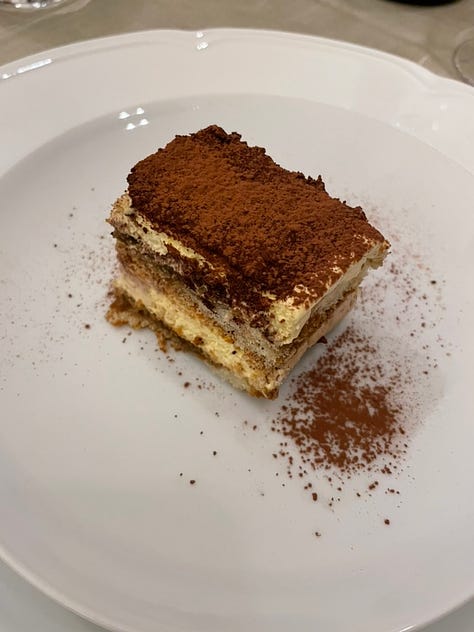
Over the five days we were there, we joked with varying degrees of seriousness about moving the DEC to San Giorgio Maggiore. Over the years, other friends and I have also joked with varying degrees of seriousness about starting a commune: Massachusetts, upstate New York, Sicily, and/or Switzerland.
American women online share our sentiment. As sexist responses to the election show, it’s a scary time to be a woman,1 and online, women are responding with everything from despair to vitriol to humor.

Some are proposing radical action. In the last week, US interest in the “4B movement” has skyrocketed. 4B originated in South Korea and refers to “four nos”: no dating, sex, marriage, or having kids with men. South Korea has one of the most extreme political gender divides in the world and a birth rate of 0.78, well under the replacement rate of 2.1.
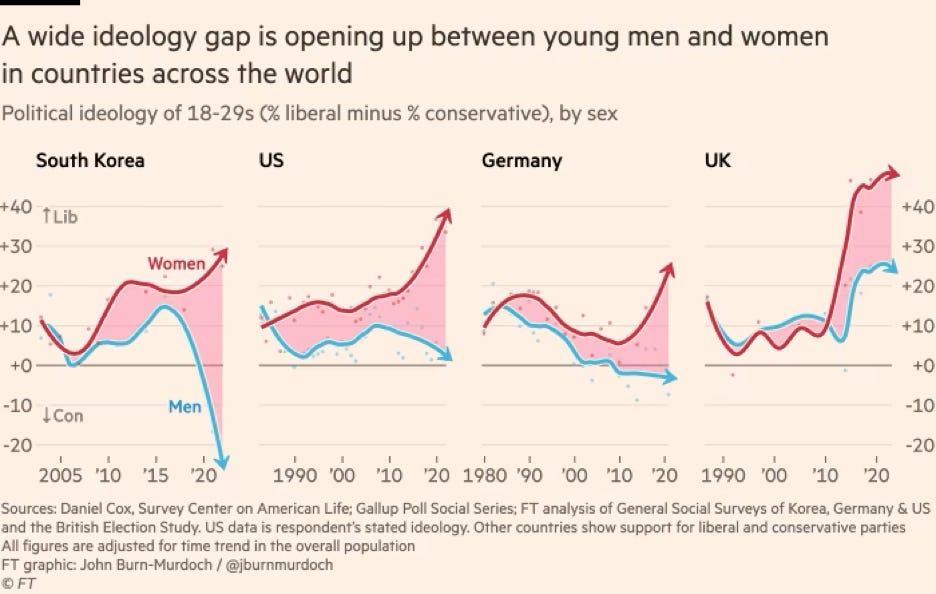
The government promotes pro-natalist policies and in 2017 a paper from the Korea Institute for Health and Social Affairs advocated an “innocuous conspiracy” to influence women to marry down, which triggered protest. The originators of the 4B movement adopted “we refuse to be fertile, we refuse to be livestock” as one of their slogans, but it’s not just a social protest—there’s an economic and self-help angle to it too, because to remain single requires economic independence in a sexist labor market.
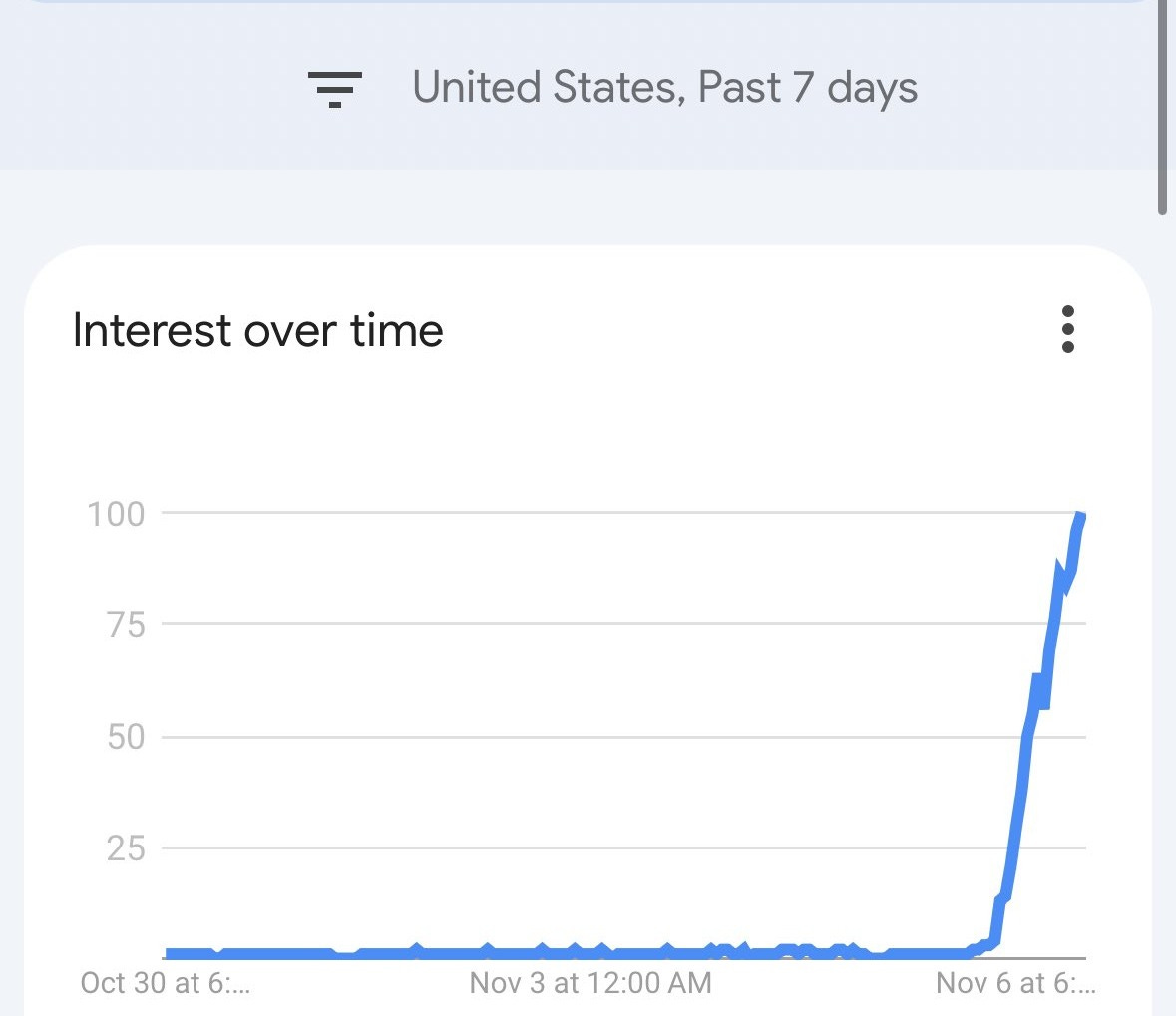
4B is now taking off on TikTok and other online platforms. When I heard about it, I couldn’t help but think back to the the lesbian separatist movement of the 1960s and 1970s. In the era of rampant homophobia and sexism (lesbians were called the “lavender menace,” even by other women), some women chose to break off from male-dominated society and form women-only communes. Often called “womyn’s land,” the separatist movement had thousands of members, and some of the communes still exist today. Not all of the women were gay in the sense of being attracted to other women; some were “political lesbians” who swore off men as a political statement. Some preferred the term “woman identified” to emphasize that “all kinds of connections between women—sexual or not—carried the power to upend heterosexuality’s embrace of the patriarchal status quo.”
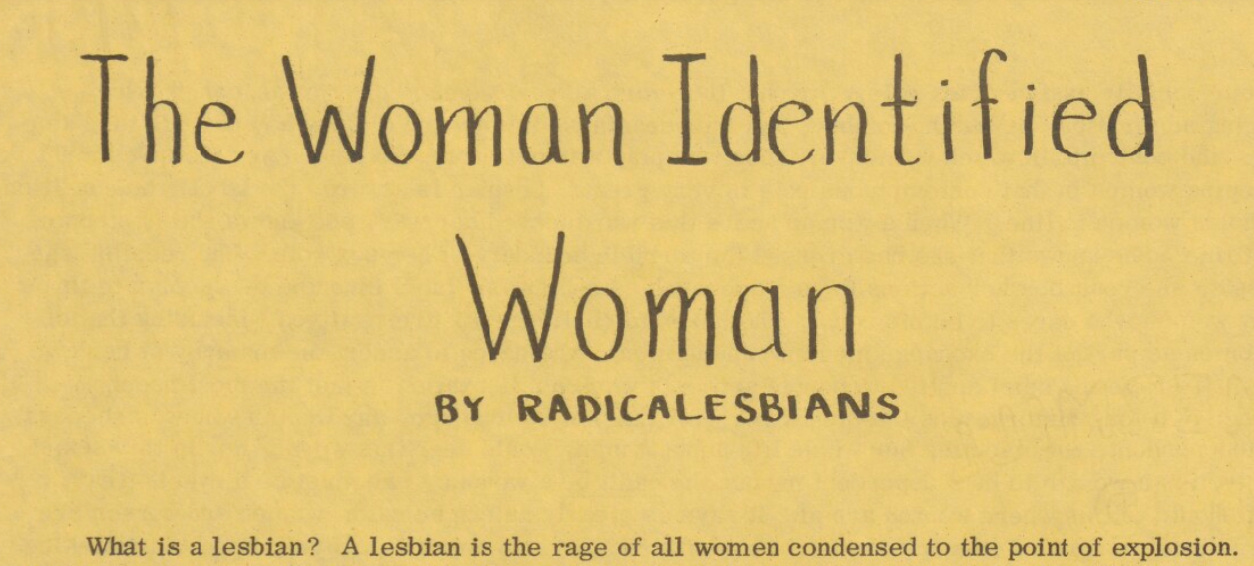
The 4B movement clearly contains echoes of lesbian separatism in its disapproval of interactions with men, although it focuses on romantic and sexual entanglements rather than all interactions. Unfortunately, it also shares some of its biases—both movements are highly transphobic. Second-wave feminism was notoriously TERFy2 and 4B is as well. It also discriminates against lesbians, whereas lesbian separatism looked down on straight women who didn’t define themselves as political lesbians.
4B is different, though, in that it’s not advocating physical separation, only relational separation. One of the primary issues with lesbian communes was that people often don’t want to live in the places where the communes are. Remote areas with fewer opportunities for work made the communes more difficult to sustain, and many of them were established in rural but liberal areas like Burlington, Vermont, where one lesbian commune overseer says “honestly… the patriarchy has a lower volume.” But even without the physical separation, these movements face difficulties. They’re essentially a boycott of men, and boycotts of any sort require effort and commitment. And when what you’re boycotting isn’t as easily replaced as, say a can of coconut milk that exploits monkey labor (apparently a thing?) this becomes more difficult.

The original feminist separatist movement’s response to the fact that some women still want relationships with men was basically “tough, figure it out.” But that’s probably not going to fly with women who still like men, especially liberal women who are dating liberal men. I don’t date men, but I like my dad and brothers and male friends, and I’d be inflicting needless suffering on them and myself and making zero positive impact on the world by cutting them out of my life. Lesbian separatism worked great for gay women who genuinely wanted nothing to do with men, but struggled to get sufficient numbers of gay women who still wanted to be around some men and straight women who weren’t content with the prospect of political lesbian sisterhood as a replacement for romantic and sexual relationships with men. Boycotts work best when they aren’t actually a hardship; as soon as it requires significant commitment, the number of participants is going to drop. 4B doesn’t require moving to a remote location, but no dates/sex/marriage/children is an enormous ask, and one that few women will be willing to answer.
Where does this leave us? Honestly, I don’t think the 4B movement will go mainstream, in the US or South Korea. But like the commune movement that shared its likely fate, it’s a sign of feminine discontent with the status quo, a frustration that has roiled for generations and manifests in separatism during particularly roiling times. But, for whatever reason, most women like men, so these movements sputter out and the cycle continues. Adding the Internet might give it a lower-stakes outlet: women might create niche women’s spaces online, akin to women-only BBSs and MUDs that were retreats from the toxicity of the rest of cyberspace in the 1980s and 1990s. On the other hand, commune life could potentially go viral on TikTok and inspire a new generation of radical feminist separatists; after all, we are addicted to trad wives. A huge question is how this will contribute to gendered polarization; if 4B gains traction, it might be further fuel for the “manosphere” to get angry, which in turn will fuel more radical feminist reactions, and the cycle will continue, perhaps making the US polarization look more like the graph of South Korea above.
4B has an advantage over the commune movement because it is virtual, and that means it will stay with us. A movement that exists online rather than in isolated rural communes can simmer unnoticed by most for a long time until the algorithm resurfaces it and brings it back into the public consciousness. And as a form of virtual separatism, a way to cope via meme, it’s likely to persist. Anything else is unlikely, but if you happen to have a plot of land… call me up.
Although women were one of the groups that moved most towards Trump; the sisterhood is not alright.
TERF stands for “trans-exclusionary radical feminist” and refers to “feminists” who define womanhood as linked to biological sex. See: JK Rowling
Thumbnail generated by DALL-E 3 via ChatGPT with the prompt “Please generate an abstract Impressionist painting inspired by the theme of communes in shades of lavender.”




